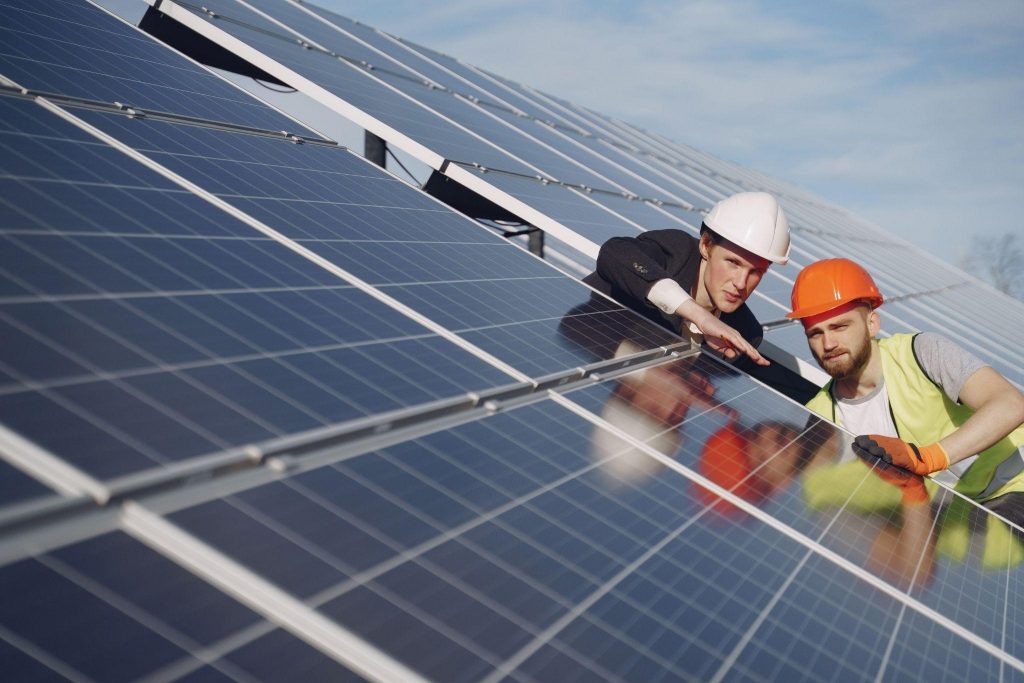In the last two years, international organizations have held numerous meetings at the global level, passed bills and drafted a comprehensive set of environmental rules and guidelines. Unfortunately, the discussion around global warming and the need for sustainable development has so far been only theoretical. In this article, we will discuss how the industry is improving its sustainability by switching to solar power.
How does solar power lead to sustainable development?
Before moving on to the many benefits that solar panels offer for a green and sustainable future, let’s first understand how solar energy is produced. One of the main reasons for companies to turn to solar energy is that the working principle behind photovoltaics is simple and easy to understand.
In other words, because people tend to invest in technologies they understand, company owners don’t hesitate to use tools to produce solar energy. Typically, solar energy is generated by using PV or solar photovoltaic technology, which efficiently converts solar radiation or sunlight into electrical energy using semiconductors.
So, when the sun’s rays reach these semiconductors installed in the photovoltaic cell, it leads to a dispersion of electrons that are collected by the rails, which ultimately leads to the generation of electricity.
Some of the advantages of solar energy and how it contributes to sustainable development can be seen below:
- The first and foremost concern of company owners is to save money wherever they can so they can earn more. Solar energy will not only lead to sustainable development, but also provide a high return on investment, which saves the company a large portion of operating costs.
- Usually, in order to meet their energy needs in an efficient way, companies choose energy supply from energy exchanges offering electricity on the open market. It is a service that compares current energy prices on the market and offers the most reasonable deal so that companies can save some amount on their overall costs. In contrast, solar energy reduces dependence on oil and fossil fuels, giving companies a chance to improve their other manufacturing processes.
- In addition, industrial enterprises find it best to invest in equipment that is safe, durable and long-lasting. Since solar panels last over 30 years, almost no repairs or replacements are required after the installation process. Therefore, solar panels and solar energy are not only sustainable but also cost-effective.
- In order to reduce the impact of climate change, company owners accept their responsibility to the environment and society. They understand that because solar energy is sustainable, pollution-free and emits no greenhouse gases, it also requires a new skilled set of people, electrical systems and technologies, creating a range of job opportunities such as PV installers, solar panel manufacturers and others .
- Finally, it is imperative to understand that every industry niche strives to be competitive and to stay ahead in the race, the company must implement strategies that make them stand out. If the industry decides to use solar energy for sustainability, it will increase their brand value by highlighting their futuristic and thoughtful approach.
Say “Yes” to PEC and pave the way for sustainable development with ATAMIQ
Each solar installation (PEC) is specific to each site. After a comprehensive engineering analysis, the appropriate placement is determined, depending on the roof design, the slope of the panels, adjacent electrical equipment and much more. We strive to meet all industry needs in the most efficient way possible, taking thoughtful measures to accelerate sustainable progress. We are investing in the development of the company, offering more and more innovative solutions ensuring sustainable decarbonisation, in line with the RePowerEU plan.
Together with the ATAMIQ team, you will have the opportunity to receive the following information:
- The capacity of your PV and the nominal power of the solar panel;
- The appropriate inverter, type of cables;
- The performance factor of the selected installation;
- The repayment period;
- Performance and maintenance;
- Warranty.
We are waiting for you at sales@atamiq.com to increase the sustainability of your enterprise together.



